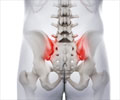Sulfasalazine Medication Information
Learn everything you need to know about Sulfasalazine-pronunciation, uses, dosage guidelines, indications, and when to take or avoid it.
Get up-to-date information on side effects, precautions, warnings, and proper storage to ensure safe usage.
Explore Sulfasalazine brand names commonly used in India and internationally, along with detailed pricing information. Consult your healthcare provider for tailored medical advice.
Generic Name : Sulfasalazine Pronunciation : sul fa sal' a zeen Therapeutic Classification : Miscellaneous Gastrointestinal ProductsBrand Names or Trade Names of Sulfasalazine
India :
International :
Azulfidine, Azulfidine EN-tabs
Why is Sulfasalazine Prescribed? (Indications)
This medication is a salicylate, prescribed for ulcerative colitis. It decreases inflammation.When should Sulfasalazine not be taken? (Contraindications)
Contraindicated in patients with blood disorder porphyria, urinary bowel obstruction and hypersensitivity.What is the dosage of Sulfasalazine?
Initial Therapy- Adults: 3 to 4 g daily in evenly divided doses with dosage intervals not exceeding eight hours.Children, six years of age and older: 40 to 60 mg/kg of body weight in each 24-hour period, divided into 3 to 6 doses.
How should Sulfasalazine be taken?
It comes as a tablet to take by mouth, with food.What are the warnings and precautions for Sulfasalazine?
• Caution should be exercised in patients with history of asthma, kidney or liver disease, porphyria, blood problems, or blockage in your intestine or urinary tract, any allergy, who are taking other medications, during pregnancy and breastfeeding.• It may cause drowsiness or dizziness, do not drive a car or operate machinery while taking this medication.
• Avoid exposure to sunlight.
• Monitor liver function, kidney function, complete blood cell counts, urine tests regularly while taking this medication.
• It should not be used in children less than 2 years old.
What are the side effects of Sulfasalazine?
Most Common - Nausea, indigestion, rash, headache, abdominal pain, vomiting, fever, dizziness, mouth ulcer, itching, abnormal liver function tests, decrease in white blood cells and decrease in platelets.Blood - Anemia and bruising.
Hypersensitivity - Redness of the skin, skin death, shock, hives, hair loss, joint pain, lung inflammation and difficulty in breathing.
Gastrointestinal - Liver failure, bloody diarrhea, diarrhea, abdominal pain and intestinal inflammation.
Central Nervous System - Convulsions, sleeplessness, unsteadiness, paralysis, mental depression, unsteadiness, hearing loss, incoordination, hallucinations, ringing in the ear and drowsiness.
Genitourinary - Absence of urination, kidney inflammation, urinary tract infections, blood in urine and protein in urine.









